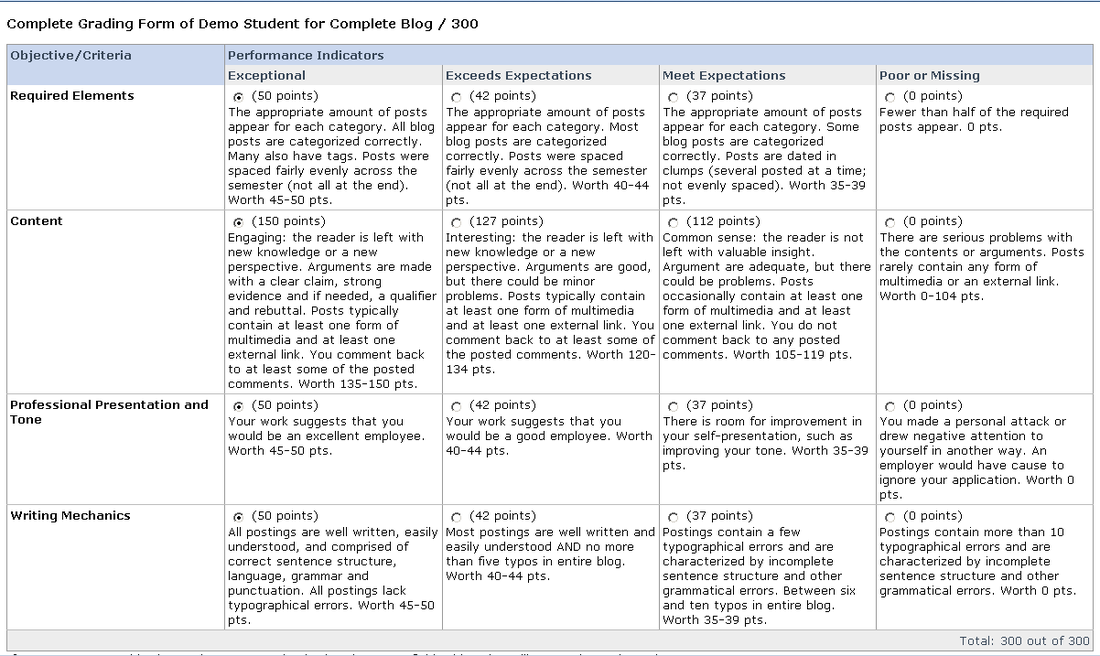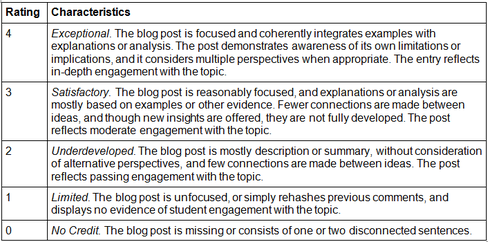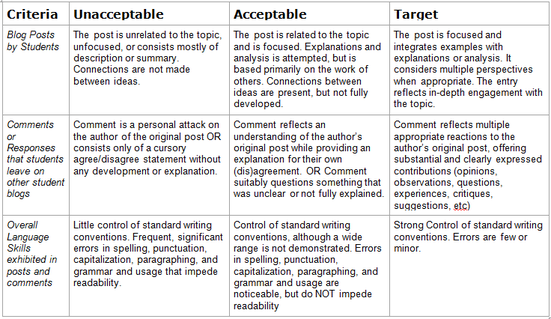So why have I allowed this to occur? I think that time management is a serious issue. I have viewed blogs as an additional assignment, rather than a way to bring writing that is more traditional into the 21st century. Therefore, instead of replacing in-class writing assignments with blogs or discussion boards, I have just added them on and thus I begin to run out of time.
Another problem has been the method of evaluating the blogs. How does one truly evaluate (and grade) what is a reflection of the beliefs and musings of another person? I prefer short and simple evaluations when having to grade so many items. The problem I have had is that the rubrics I have typically found are similar to the one found on THIS website:
However, another of the posts that I found on ProfHacker by Mark Sample talked about how he assigned and evaluated student blogs. In the blog post A Rubric for Evaluating Student Blogs, Sample shares my concerns for time management, saying “But when you have 15 or 25 posts per week, per class, how do you grade them all? How do you let students know what kind of work you value?--And what kind of work they should likewise value? Assessing the enormous number of posts on the class blog is challenging, to say the least.” Consequently, his rubric is short and simple:
This lack has resulted in the following rubric:
Glogowski, K. (2008, Feb 04). Towards reflective BlogTalk [Web log message]. Retrieved from http://www.teachandlearn.ca/blog/2008/02/04/towards-reflective-blogtalk/
Meloni, J. (2009, Aug 13). Integrating, Evaluating, and Managing Blogging in the Classroom [Web log message]. Retrieved from http://chronicle.com/blogs/profhacker/integrating-evaluatingmanaging-blogging-in-the-classroom/22626
Nixon, B. (2009, Apr). Public relations matters. Retrieved from http://publicrelationsmatters.com/wp-content/uploads/2009/04/blog-rubric.pdf
Profhacker. (n.d.). Retrieved from http://chronicle.com/blogs/profhacker/
Sample, M. (2010, Sept 27). A rubric for evaluating student blogs [Web log message]. Retrieved from http://chronicle.com/blogs/profhacker/a-rubric-for-evaluating-student-blogs/27196



 RSS Feed
RSS Feed
